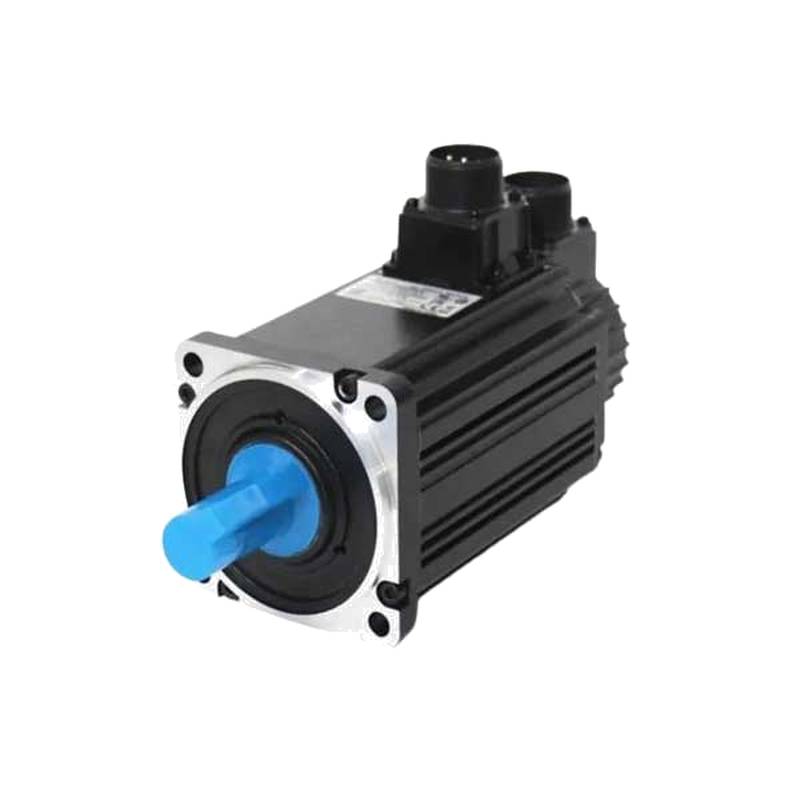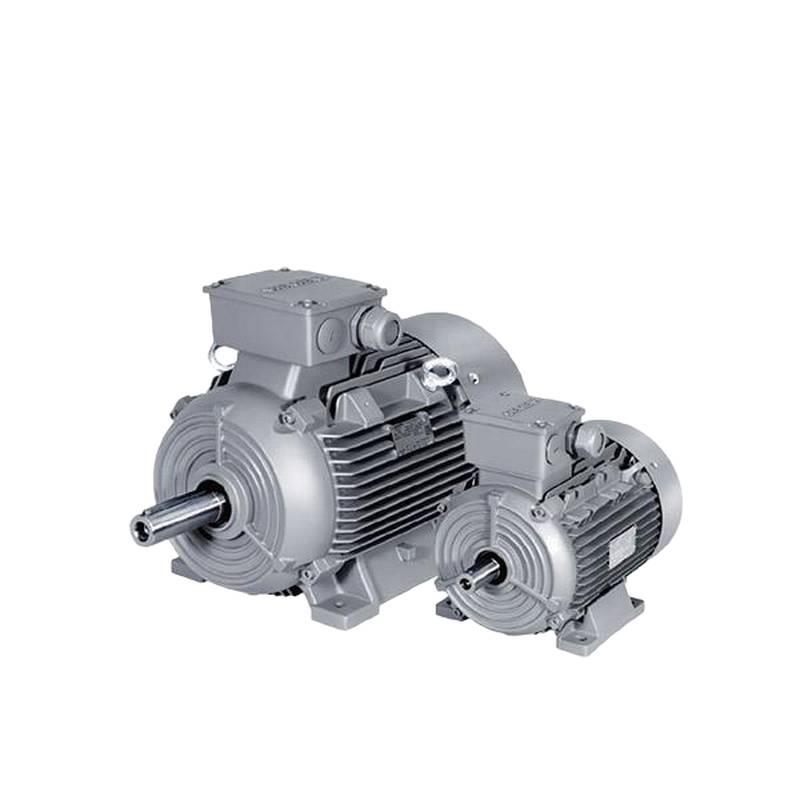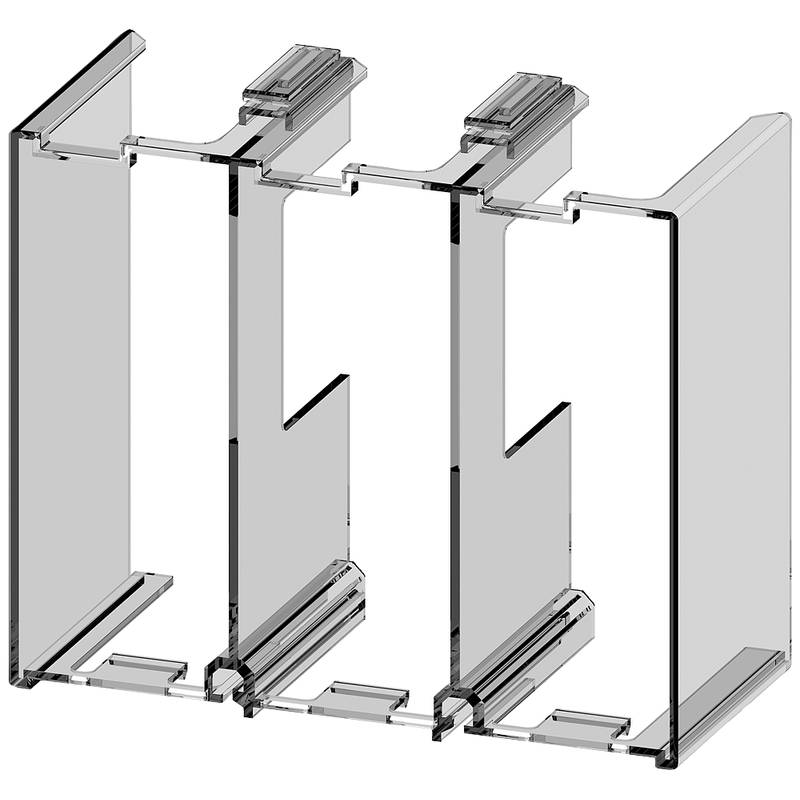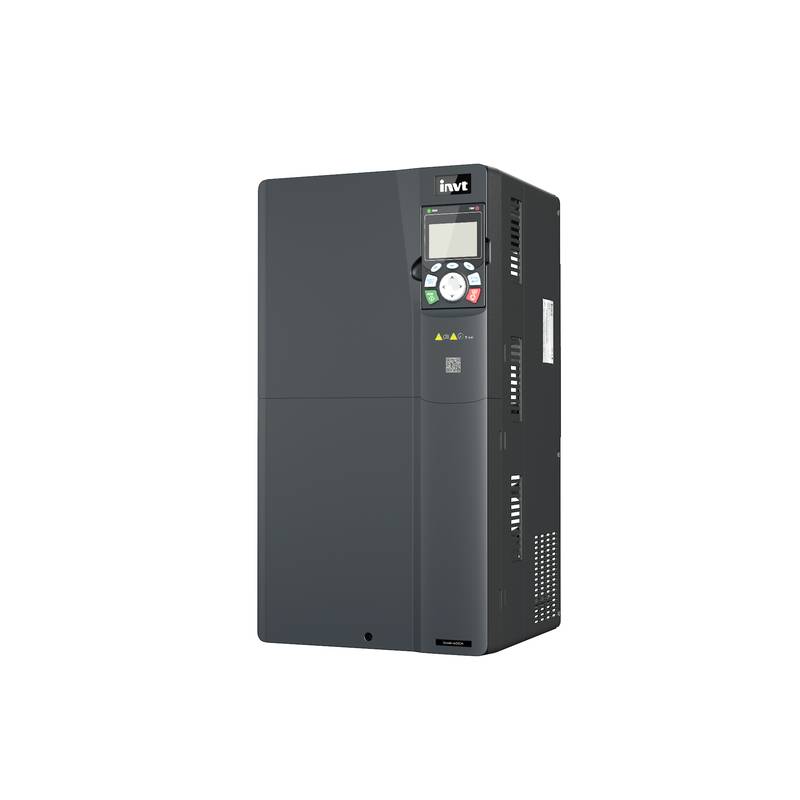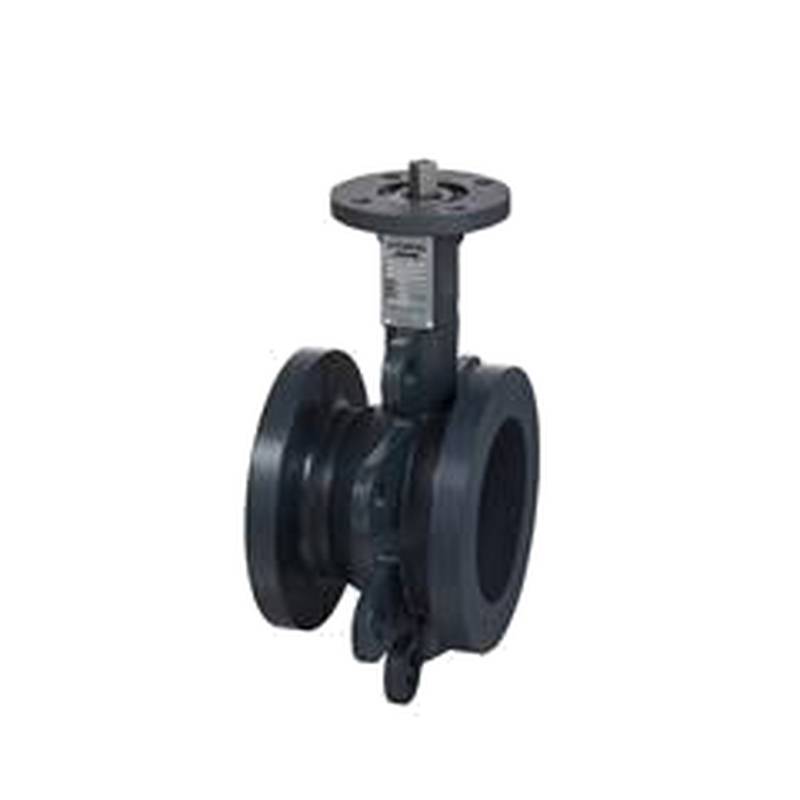
Delta ECM-B3H-FA1308SS1 B3 Series Servo Motor: Precision Motion Redefined
The Delta ECM-B3H-FA1308SS1, a key component of the advanced ASDA-B3 Series, represents a significant leap forward in servo motor technology. Engineered for high-precision industrial automation, this motor excels in delivering exceptional motion control, characterized by its high tolerance, stable operation, and rapid responsiveness. Boasting a speed of up to 6000 rpm and a peak torque of 350%, the ECM-B3H-FA1308SS1 drastically reduces settling times by up to 40% compared to previous generations, enabling optimized production efficiency and enhanced output value. Its integration into a user-friendly operation environment simplifies complex tasks, making it an indispensable asset for demanding applications. The motor is designed to support 24-bit absolute encoders, ensuring superior positioning accuracy and data retention even after power cycles.
Product Specifications
| Parameter | Specification |
| :--------------------- | :---------------------------------------------- |
| Series | ASDA-B3 Series |
| Motor Type | AC Servo Motor |
| Model | ECM-B3H-FA1308SS1 |
| Rated Power | 0.85 kW |
| Rated Torque | 5.39 N-m |
| Maximum Torque | 16.17 N-m (300%) |
| Rated Speed | 1500 rpm |
| Maximum Speed | 6000 rpm |
| Encoder Resolution | 24-bit absolute encoder |
| Communication Protocol | EtherCAT (up to 8 KHz), CANopen, Modbus RTU |
| Safety Features | Embedded STO (Safety Torque Off) SIL2 |
| Response Bandwidth | 3.1 kHz |
| Settling Time Reduction| Up to 40% |
| Motor Length Reduction | Up to 30% (compared to ECMA series) |
| Insulation Class | Class A (UL), Class B (CE) |
| IP Rating | IP67 (with waterproof connections and oil seal) |
| Operating Temperature | -20°C to 60°C |
| Storage Temperature | -20°C to 80°C |
Core Features & Market Positioning
The Delta ECM-B3H-FA1308SS1 is positioned as a premium solution for applications demanding high precision and rapid dynamic response. Its standout feature is the advanced control algorithm that overcomes limitations in machine structure stiffness, providing unparalleled control flexibility. The inclusion of a 24-bit absolute encoder, a significant upgrade offering 128 times greater resolution than previous models, ensures precise positioning and eliminates the need for re-homing after power interruptions. Furthermore, the motor's compact design, with a reduced length of up to 30% compared to the ECMA series, allows for smaller equipment footprints without compromising performance. Delta's ASDA-B3 series is recognized for its high-speed communication capabilities, including EtherCAT, enabling seamless axis synchronization critical for complex multi-axis systems. The embedded STO (Safe Torque Off) SIL2 functionality enhances operational safety by providing reliable protection against unexpected motor movement.
Key Application Scenarios
The robust performance and advanced features of the Delta ECM-B3H-FA1308SS1 make it exceptionally well-suited for a diverse array of demanding industrial applications. It excels in sectors such as:
Machine Tools: Precision machining, high-speed cutting, and complex component fabrication benefit from the motor's accurate positioning and stable torque delivery. Semiconductor Manufacturing: Wafer handling, pick-and-place operations, and intricate assembly processes requiring sub-micron accuracy can leverage the motor's high responsiveness and precise control. Industrial Robots: Robotic arms requiring high speed, accuracy, and repeatability for tasks like assembly, welding, and material handling find the ECM-B3H-FA1308SS1 an ideal choice. Electronics and PCB Assembly: High-speed component placement and intricate automated assembly lines requiring rapid and precise movements are well-served by this motor's capabilities. Printing and Packaging: Automated high-speed printing presses and packaging machinery demanding synchronized movements and precise timing will benefit from the motor's fast response and communication protocols. Textiles and Warehousing: Automated guided vehicles (AGVs), automated storage and retrieval systems (AS/RS), and high-speed textile machinery requiring precise motion control and efficient operation can utilize its advanced features.
Practical System Integration Guidance
Integrating the Delta ECM-B3H-FA1308SS1 into an existing or new system involves careful attention to wiring and configuration. The ASDA-B3 servo drives support various communication interfaces, including Pulse Train, RS-485, CANopen, and EtherCAT, allowing for flexible integration with different control platforms. For optimal performance and safety, it is crucial to adhere to the wiring diagrams provided in the ASDA-B3 user manual, ensuring secure connections for power, motor phases (U, V, W), and encoder feedback. Proper grounding of the drive and motor is essential to prevent electrical hazards and ensure signal integrity. The system’s auto-tuning function simplifies the commissioning process, automatically adjusting parameters to match the motor and mechanical load characteristics, thereby minimizing setup time and optimizing performance. For advanced users, the gain adjustment function and system analysis interface aid in fine-tuning for highly specific application requirements.
Operation and Risk Mitigation
Safe and efficient operation of the Delta ECM-B3H-FA1308SS1 servo motor relies on understanding its operational parameters and implementing appropriate risk mitigation strategies. The embedded STO SIL2 function is a critical safety feature that allows for the safe de-energization of the motor, preventing unexpected starts and protecting personnel. It is imperative to disconnect power before performing any installation, wiring, or maintenance tasks. Always ensure that the motor and drive are operated within their specified environmental conditions, avoiding excessive temperatures, humidity, or vibrations. Regular visual inspections of wiring and connections can help prevent malfunctions and potential hazards. In case of alarms or abnormal operation, consult the ASDA-B3 user manual for specific troubleshooting steps. Common issues such as incorrect gain settings, mechanical resonance, or loose connections can often be resolved through parameter adjustments or system checks. Resetting to factory defaults is also an option for certain alarm conditions, though it requires careful re-configuration of parameters.
Scalability & Long-Term Value
The Delta ASDA-B3 Series, including the ECM-B3H-FA1308SS1, is designed with scalability and long-term value in mind. Its high compatibility with previous Delta servo motor series (A2/B2/A3) facilitates system upgrades and replacements, minimizing downtime and engineering effort. The availability of motors in various inertia types (high, medium, low) allows for precise selection based on application requirements, offering flexibility for future modifications or expansions. Furthermore, Delta's commitment to supporting IIoT (Industrial Internet of Things) initiatives means the ASDA-B3 series is designed to integrate seamlessly with modern smart manufacturing platforms. Support for protocols like EtherCAT and OPC UA enables robust data exchange and connectivity, positioning the ECM-B3H-FA1308SS1 as a future-proof component in the evolving landscape of industrial automation and digitalized factories.
FAQs
Q1: What are the primary advantages of the Delta ECM-B3H-FA1308SS1 servo motor?
The Delta ECM-B3H-FA1308SS1 offers superior responsiveness, significantly reducing settling times. Its 24-bit absolute encoder ensures high positioning accuracy. The motor boasts a compact design, making it ideal for space-constrained applications. Safety features like STO SIL2 enhance operational security.
This servo motor provides exceptional torque and speed capabilities, crucial for dynamic industrial tasks. Its advanced auto-tuning function simplifies setup and optimization. The integration of high-speed communication protocols like EtherCAT ensures efficient system synchronization.
The ECM-B3H-FA1308SS1 is built for reliability and longevity in demanding environments. Its compatibility with previous Delta series motors aids in system upgrades. The motor is designed to support IIoT integration for smart manufacturing.
Q2: What technical specifications are most critical for the Delta ECM-B3H-FA1308SS1?
Key specifications include its 0.85 kW rated power and 5.39 N-m rated torque. The maximum torque of 16.17 N-m (300%) is vital for high-demand acceleration phases. Its rated speed of 1500 rpm and maximum speed of 6000 rpm define its dynamic performance envelope.
The 24-bit absolute encoder resolution is critical for achieving precise positioning accuracy in sensitive applications. Its 3.1 kHz response bandwidth signifies its capability for rapid dynamic adjustments. The embedded STO SIL2 feature is paramount for functional safety compliance.
The IP67 rating, when properly equipped, highlights its suitability for environments with dust and water ingress concerns. Operating temperature range of -20°C to 60°C ensures robust performance in varied industrial conditions.
Q3: In which industrial applications does the Delta ECM-B3H-FA1308SS1 excel?
This servo motor is ideal for machine tools requiring high precision and speed. It's also suited for semiconductor manufacturing, particularly in pick-and-place and assembly tasks. Industrial robots benefit from its accuracy and dynamic response.
It performs exceptionally well in electronics manufacturing and PCB assembly for high-speed component placement. The printing and packaging industries leverage its synchronized movement capabilities. Its versatility extends to textiles and warehousing automation.
The ECM-B3H-FA1308SS1 is a strong choice for any application demanding accurate, repeatable, and fast motion control. Its robust design ensures reliability across diverse industrial settings.
Q4: How is the Delta ECM-B3H-FA1308SS1 integrated into control systems?
Integration is facilitated by the ASDA-B3 servo drives supporting multiple communication protocols. EtherCAT is a primary choice for high-speed, synchronized motion control across multiple axes. Pulse train, RS-485, and CANopen offer alternative connectivity options for various controllers.
Careful wiring of power, motor, and encoder signals is essential. Following the detailed diagrams in the ASDA-B3 user manual ensures correct connections. Proper grounding of the drive and motor is vital for signal integrity and safety.
The system's auto-tuning function simplifies initial setup. Advanced users can leverage gain adjustment and system analysis tools for fine-tuning. This flexible integration capability allows compatibility with diverse automation architectures.
Q5: What are the primary safety features of the Delta ECM-B3H-FA1308SS1?
The most significant safety feature is the embedded STO (Safe Torque Off) function with SIL2 rating. This ensures the motor cannot be unintentionally energized, preventing hazardous movements. It meets stringent safety standards for industrial machinery.
Proper installation procedures, including correct grounding, are crucial risk mitigation steps. Adhering to voltage and environmental specifications prevents operational failures and potential hazards. Disconnecting power before maintenance is a fundamental safety protocol.
The manual’s detailed safety precautions must be followed by qualified personnel. Understanding alarm codes and troubleshooting procedures helps in addressing issues safely. Regular inspection of components enhances overall system safety.
Q6: What makes the Delta ECM-B3H-FA1308SS1 suitable for IIoT integration?
Its support for high-speed communication buses like EtherCAT is key. This enables efficient data exchange with IIoT platforms and supervisory systems. Compatibility with protocols like OPC UA further enhances its connectivity in smart factory environments.
Delta's focus on developing IIoT-based automation solutions means the ASDA-B3 series is designed for modern digitalized systems. This allows for real-time monitoring, data analysis, and predictive maintenance capabilities. It supports the transition to Industry 4.0 and beyond.
The motor's advanced performance characteristics, combined with its communication flexibility, make it a future-proof component. It can seamlessly integrate into complex automated networks for optimized production processes and efficiency.
Q7: How does the 24-bit absolute encoder benefit users of the ECM-B3H-FA1308SS1?
The 24-bit resolution provides extremely high positioning accuracy. This level of precision is critical for applications demanding sub-micron repeatability and exact positioning. It ensures that the motor can achieve and maintain very specific locations.
A significant advantage is that absolute encoders retain position data even when power is lost. This eliminates the need for a re-homing routine upon startup, saving time and improving operational efficiency. The motor knows its exact position immediately after power-up.
This advanced encoder technology enhances overall system reliability and performance. It contributes to smoother motion control and reduced errors in automated processes. The enhanced data resolution offers greater feedback precision.
Q8: What is the significance of the 40% settling time reduction?
A 40% reduction in settling time means the motor reaches its target position and stabilizes much faster. This directly translates to increased productivity in automated machinery. Faster cycle times allow for more operations within the same timeframe.
This improved dynamic performance is crucial for applications with frequent start-stop or rapid directional changes. It minimizes overshoot and oscillation, leading to smoother, more stable machine operation. Reduced vibration can also prolong equipment life.
The faster settling allows for higher throughput in tasks like high-speed packaging or robotic assembly. It is a key indicator of the motor's advanced control algorithms and responsiveness. This enhancement benefits overall system efficiency.
Q9: Can the Delta ECM-B3H-FA1308SS1 be used in environments with dust or moisture?
With an IP67 rating, when equipped with appropriate waterproof connections and an oil seal, the motor can withstand dust and temporary immersion in water. This makes it suitable for challenging industrial environments where contaminants are present. Careful selection of accessories is key.
The IP67 rating signifies protection against dust ingress and against harmful effects of temporary immersion in water (up to 1 meter for 30 minutes). This robustness is vital for industries like food processing or chemical handling where washdowns are common. It reduces the risk of internal damage.
However, it's essential to confirm that all sealing surfaces and connections are correctly installed and maintained. For continuous submersion or high-pressure washing, additional protective measures may be necessary. Always consult the detailed specifications for specific environmental limits.
Q10: What are common troubleshooting steps for the Delta ASDA-B3 servo system?
Begin by checking basic power and wiring connections for any faults or loose connections. Verify that the input voltage is within the specified range. Inspect for any visible damage to the drive, motor, or cables.
Consult the ASDA-B3 user manual for specific alarm codes displayed by the drive. These codes provide direct indications of the issue, such as overcurrent, over-voltage, or encoder errors. Follow the recommended corrective actions for each code.
If issues persist, consider performing an auto-tuning process to re-optimize parameters for the motor and load. For persistent or complex problems, advanced troubleshooting may involve checking gain settings, mechanical resonance, or contacting Delta technical support.














